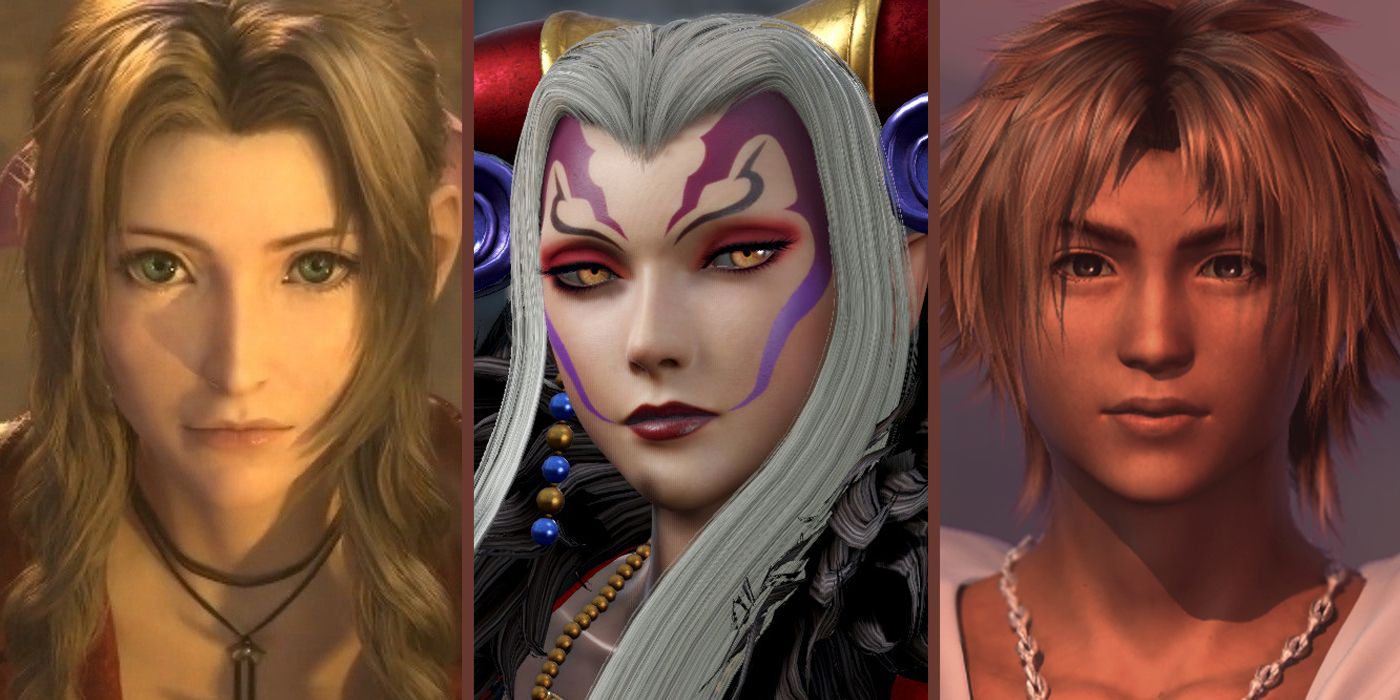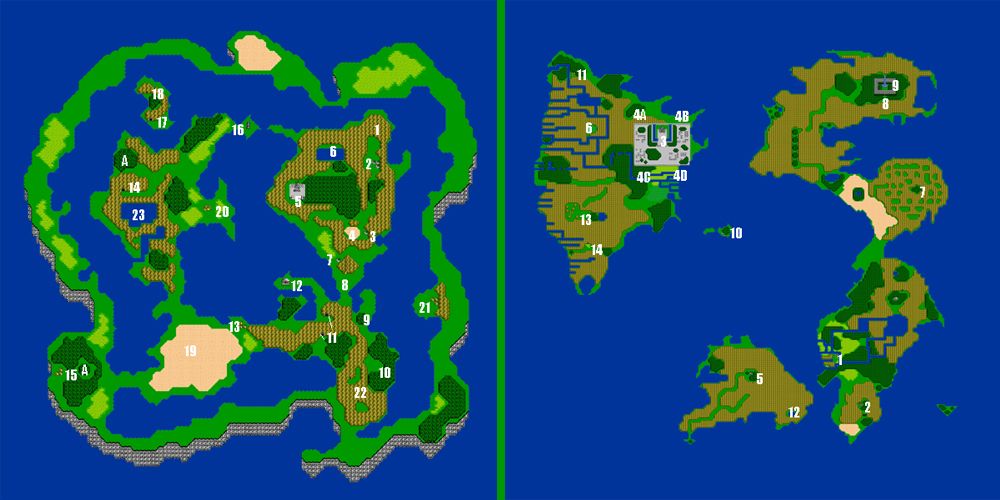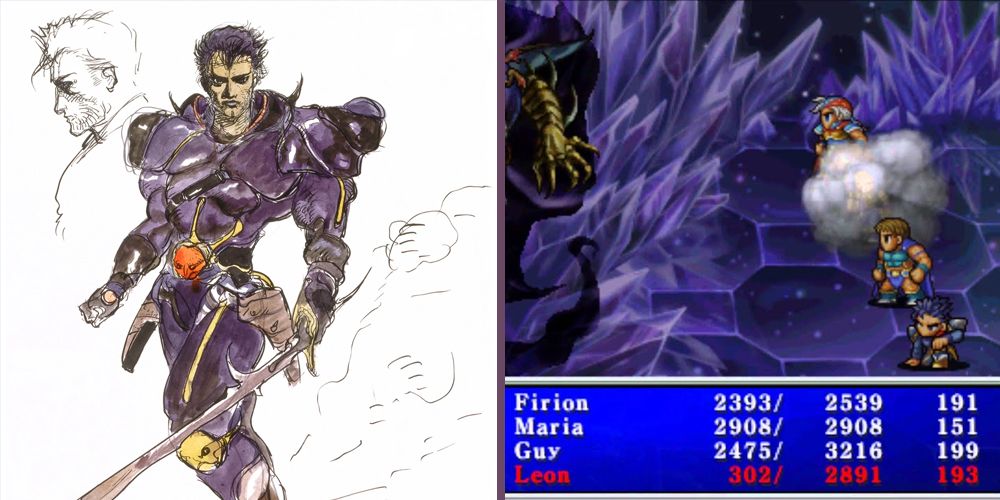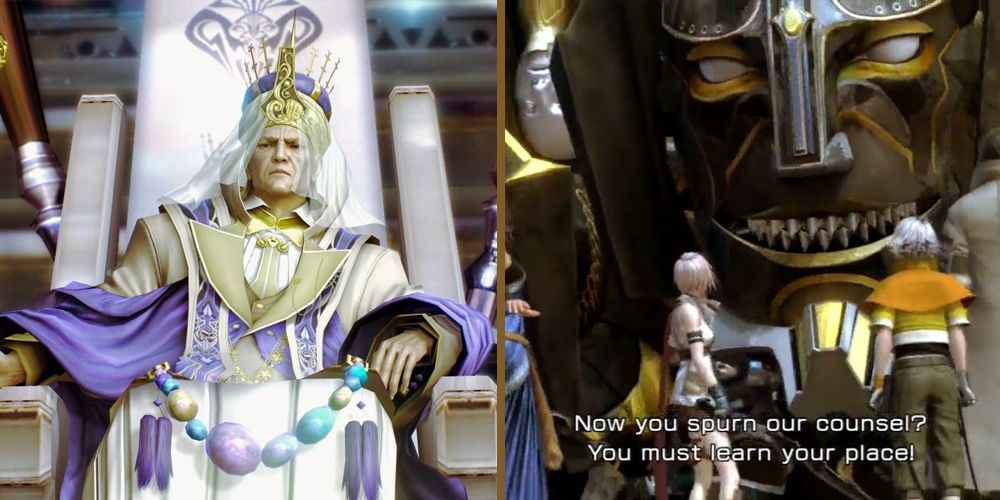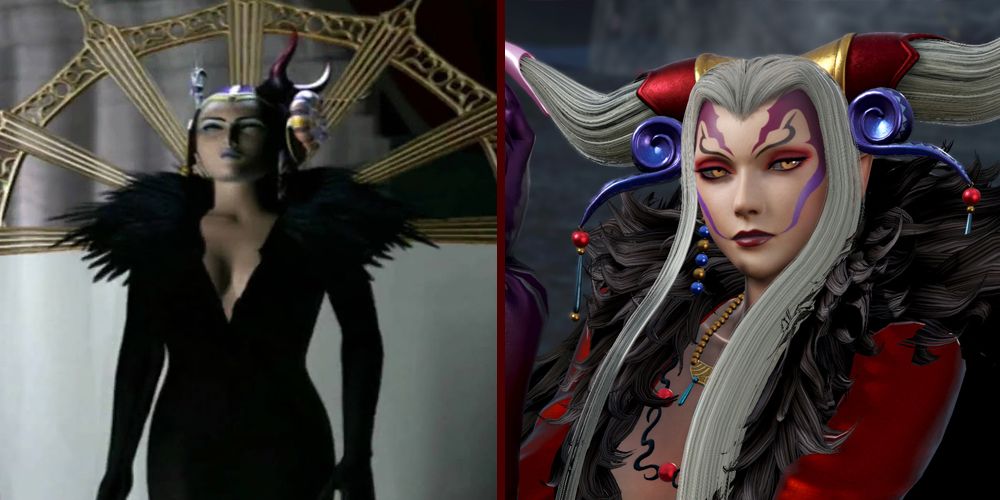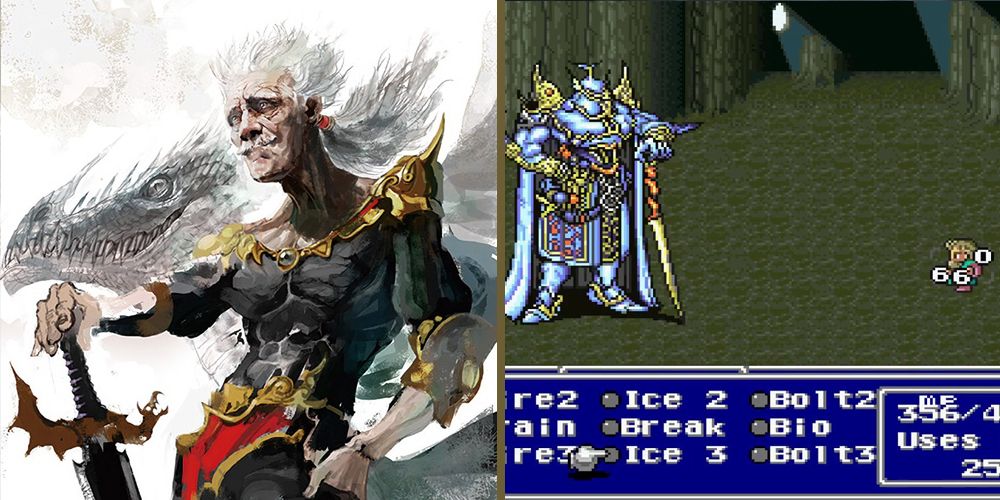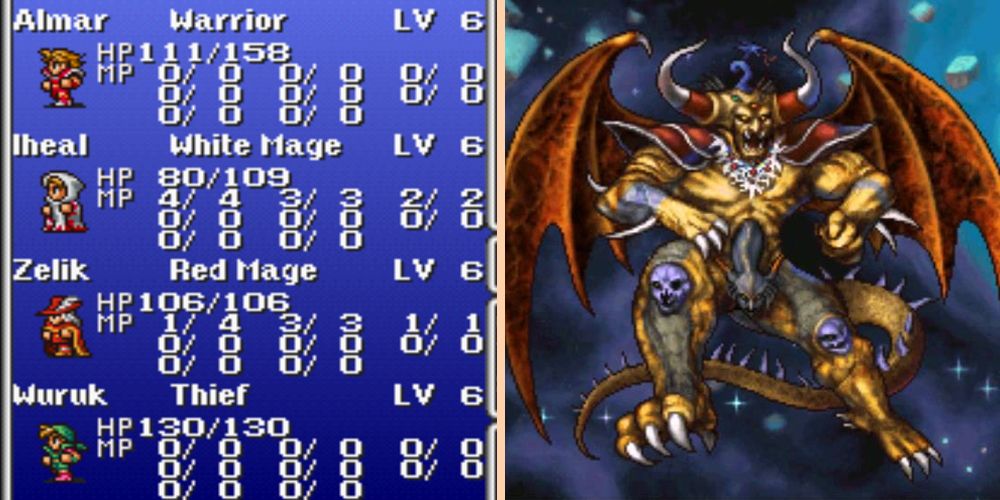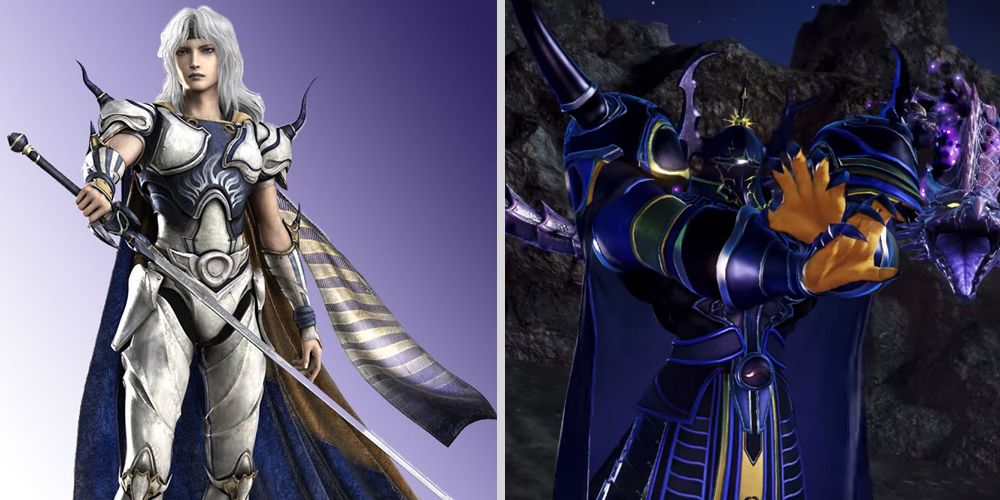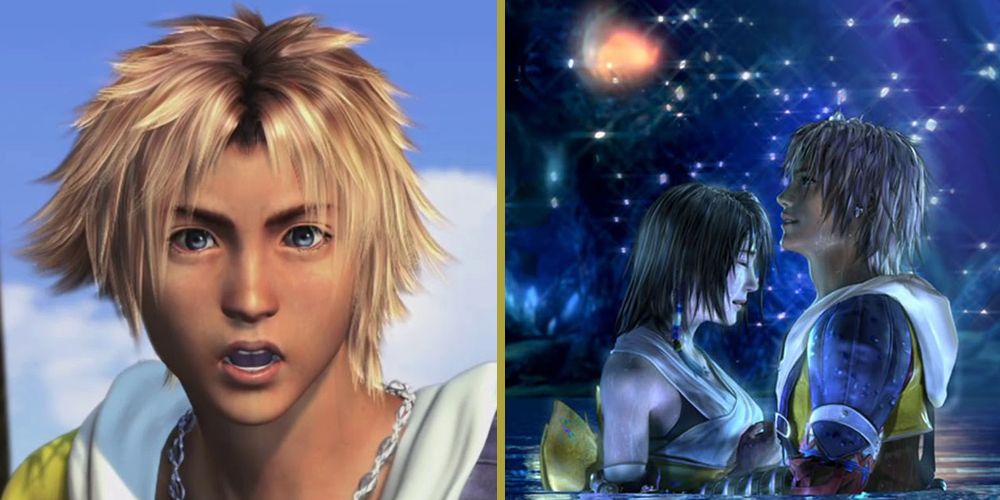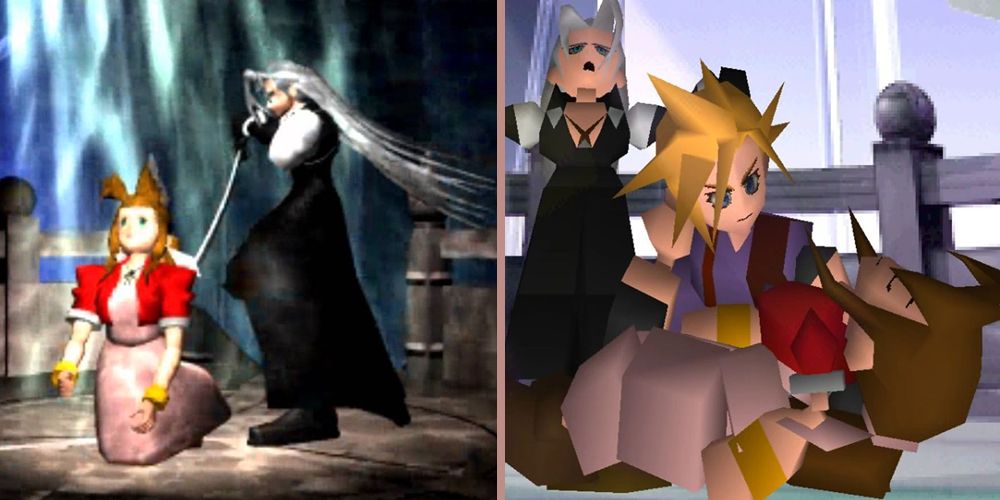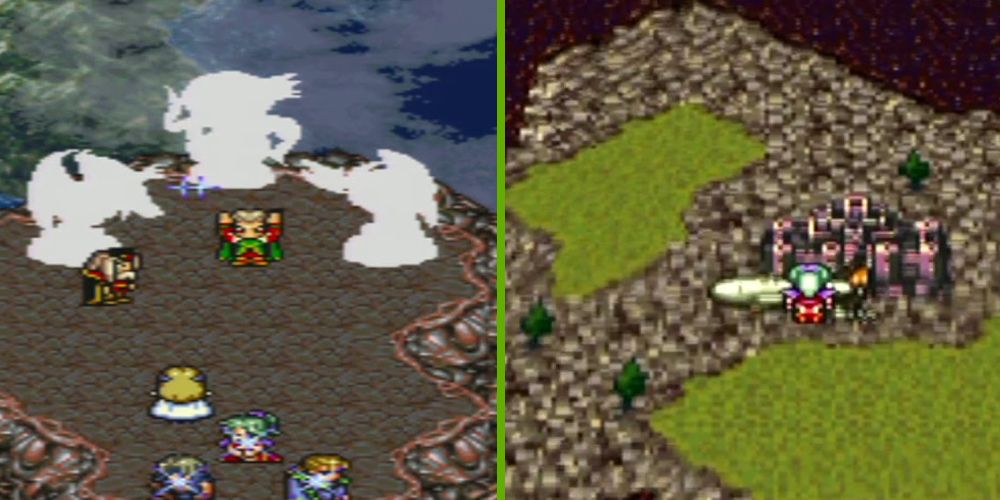Evoking feelings of joy and sorrow through a game's narrative is fairly straightforward. Coming up with a convincing plot twist, on the other hand, requires a level of subtlety that very few writers possess. Video games have been subverting players' expectations since the early days of gaming, but few series are as adept at flipping the script than Final Fantasy.
Over the years, players have been treated to some incredible plot-twists. Some have certainly landed better than others, but, throughout its 15 numbered entries, the franchise has provided some truly unforgettable and entirely unpredictable moments. They make the games some of the best in the industry and stick with players long after the end credits have finished rolling.
10 The Floating Continent (Final Fantasy III)
The Final Fantasy series helped to popularize the idea of a world map in video games and is known for its huge worlds. Not to be confused with the floating continent found in Final Fantasy VI (which, just for good measure, was originally released as Final Fantasy III in North America), the realization that the world explored in Final Fantasy III is just one floating continent in a seemingly endless ocean came as quite a big shock.
That the world map changes several times throughout the game breathes new life into a world that is already very much alive. In a series that leans so heavily on its exploration elements, the twist serves to impress upon the player just how large the world of Final Fantasy III really is. Moreover, it forces them to question the significance of the events that have already transpired as a result of that expansiveness.
9 Leon's Allegiances (Final Fantasy II)
Final Fantasy II's plot might not be one to write home about, but the way that it handles Leon's story arc certainly deserves some credit. During the game's opening stages, he is presented as a regular party member. After being separated from the party following an invasion though, his fate is left a little up in the air. That is, until, he reappears a little further down the line having joined forces with the Empire.
Seeing a one-time ally lining up amongst the enemy forces is a bitter pill to swallow. His change of allegiance feels like a slap in the face, even if his earlier time with the party was brief. Familial bonds and a failed attempt to seize control of the empire eventually bring him back to the party, but it's difficult to see him in a positive light after what he did.
8 Galenth Dysley Is A Fal'Cie (Final Fantasy XIII)
Final Fantasy XIII's narrative is both confusing and complicated, but the revelation that Galenth Dysley is actually a fal'Cie provides one of its few good moments. Learning that Cocoon is actually a farm for human souls that will be used to summon an all-powerful god from another realm may well be a little bizarre. In a game that's made up primarily of long linear sections though, it's one of the few truly interesting ideas present in an otherwise underwhelming and uninspired plot.
The Final Fantasy series has never painted religion in a particularly positive light. This is somewhat ironic really, given that religion has provided the inspiration for many of the series' summons. Regardless, the writers are still able to find new ways to demonize and vilify religion is incredibly impressive given how long the series has been active.
7 Edea Was Being Possessed (Final Fantasy VIII)
Edea alone makes for a pretty compelling antagonist. To learn then that there is a bigger, more powerful threat out there ups the ante significantly. Furthermore, finding out that the woman who players have come to despise is actually a victim forces them to completely reevaluate the situation. Even knowing that she had been controlled like a puppet though, there's still a certain level of unease when it comes to working with Edea after her strings have been cut.
As for Ultimecia's unveiling, it raises the stakes immeasurably. The threat of an incredibly powerful sorceress is daunting enough, but one with the power to manipulate time and possess even the strongest of people makes for a seemingly unstoppable foe. It's very much a case of 'out of the frying pan and into the fire' for both the player and the party.
6 Galuf Bites The Dust (Final Fantasy V)
Although several party members had already bitten the bullet at this point in the series, most were considered guest characters, and the rest had joined the fight partway through. Galuf's death is the first time that somebody who has been with the party from the beginning of the journey dies. That makes it infinitely more shocking, as does the manner of his death.
The way that he struggles in vain to bring down Exdeath is both admirable and upsetting. When watching the two face-off, one can't help but be reminded a little of both Harry Potter and Star Wars. Exdeath's insistence that there is no amount of hate that could defeat him reveals an ignorance that mirrors both Voldemort and Palpatine. Galuf is fighting out of love and this is very nearly enough to bring down the evil warlock. Unfortunately, however, on this occasion, love wasn't quite all that was needed.
5 The Infinite Loop (Final Fantasy)
This is one of the series' first big plot-twists and arguably its most divisive. It's somewhat reminiscent of the Doctor Who episode Heaven Sent, wherein the Doctor is locked in a makeshift prison and is haunted by a ghostly specter over the course of billions of years. Unlike the Doctor, however, their loop is one that the heroes of Final Fantasy are seemingly unable to ever escape from.
Some may see it as cheap storytelling, but it serves to emphasize the never-ending battle between good and evil. If history has taught us anything, it's that the idea that evil can be definitively triumphed over is a flawed one. It is a never-ending battle, and having the party continuously repeat their struggles against chaos is emblematic of this fact.
4 Cecil's Heritage (Final Fantasy IV)
Cecil's ever-changing relationships with those around him play a huge role in Final Fantasy IV's narrative. Although it's his relationship with Kain that is perhaps the most compelling, the revelations about Cecil's heritage come as the most shocking by far.
Golbez is one of the most intimidating villains in the Final Fantasy franchise and his actions throughout the game make him an easy one to hate. To learn then that he is actually Cecil's older brother therefor comes as a huge surprise. This is just the tip of the iceberg though. Players also learn that Golbez is being controlled by Zemus and that both brothers are actually half-Lunarian. It's a lot to take in and completely changes the dynamics of the game.
3 Tidus Is A Dream Of The Fayth (Final Fantasy X)
Final Fantasy X has one of the strongest narratives in the series and is full of incredible twists and turns. From the revaluation that Yuna and one of her guardians must sacrifice their lives to provide Spira with a moment's respite from Sin to the realization that Auron was killed after confronting Lady Yunalesca and is actually an unsent, it makes for an emotional rollercoaster. The most impactful twist, however, arrives at the very end of the ride.
After the party emerges victorious from the final battle, The Fayth are freed from their slumber and their dream comes to an end. With it, so too does the existence of the game's main protagonist. Tidus' narration throughout the game helped to make him an incredibly relatable character and his relationship with Yuna was equally compelling. Witnessing Yuna's reaction to losing her lover was heartbreaking, but the loss also hit many players just as hard as it did her.
2 Sephiroth Kills Aerith (Final Fantasy VII)
That almost everything that players learn about Cloud is a lie is a pretty huge revelation, but it pails into insignificance when compared with the moment that Sephiroth falls from the sky and impales Aerith. The rarity with which main characters die in the series already makes it incredibly impactful when it happens. Given Aerith's significance to the story though, her death is particularly shocking.
The emotional bonds that both the player and the party shared with Aerith provide significant added weight to the scene. Her time spent with Cloud in the Sector 6 Slums allows for some wonderful character development and her interactions with the party in subsequent scenes provide additional depth. The implications of her death are also concerning, not just in terms of the eradication of the Cetra race, but the very planet itself.
1 Kefka Destroys The World (Final Fantasy VI)
Few video game villains are as well designed as Kefka Palazzo. Players are given several warnings about his maniacal nature earlier in the game like when he kills General Leo. That makes it no less shocking though when he disposes of Emperor Gestahl a little later on. Up until this point it had been a battle against an evil empire, but it now becomes clear that Kefka is a far greater threat to the world.
Saving the planet had been a common theme throughout the Final Fantasy series up until this point and so it was assumed that the party would once again emerge victorious. Although, in some ways, this is still the case, it's not before Kefka causes the cataclysm and plunges the world into darkness and chaos. That for once the villain succeeds with their plan renders the party's eventual victory a hollow one. They may have won the battle, but countless people lost their lives in the process and the world will never be the same again.

